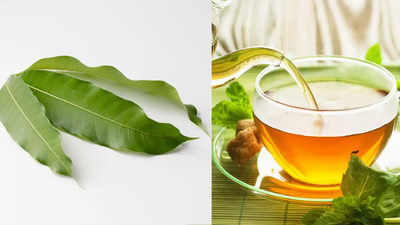Discover the Health Benefits of Mango Leaf Tea: A Natural Remedy to Start Your Day
Mango leaf tea is increasingly recognized as a powerful natural remedy packed with impressive health benefits. Consuming this herbal infusion first thing in the morning on an empty stomach can support various aspects of your well-being. From managing blood sugar to boosting respiratory health, mango leaf tea offers a wide range of therapeutic properties worth exploring.
How Mango Leaf Tea Supports Blood Sugar and Cardiovascular Health
One of the standout benefits of mango leaf tea is its potential to help regulate blood sugar levels. Scientific studies suggest that compounds in mango leaves may enhance insulin production and improve glucose uptake in the body, making it a promising natural aid for people managing diabetes. Preparing mango leaf tea by steeping fresh leaves in warm water overnight and consuming the strained infusion in the morning can contribute to better blood sugar control.
Beyond blood sugar regulation, mango leaf tea also plays a role in maintaining heart health. The leaves are rich in dietary fibre and pectin, which help reduce bad cholesterol (LDL) and support healthy blood pressure. Regular consumption may thus help lower hypertension risk and promote cardiovascular wellness naturally.
Additional Health Benefits: Fever Relief, Digestion, and Weight Management
 Mango leaf tea’s medicinal properties extend to fever reduction and digestive health. Its natural cooling effect can lower body temperature during fever episodes, especially when combined with other herbal leaves like neem or pawpaw. For digestive support, this tea acts as a gentle detoxifier, promoting bowel movements and easing gastrointestinal discomfort.
Mango leaf tea’s medicinal properties extend to fever reduction and digestive health. Its natural cooling effect can lower body temperature during fever episodes, especially when combined with other herbal leaves like neem or pawpaw. For digestive support, this tea acts as a gentle detoxifier, promoting bowel movements and easing gastrointestinal discomfort.

Moreover, those pursuing weight management may find mango leaf tea beneficial. The leaves contain compounds that enhance fat metabolism by stimulating leptin producing a hormone that helps regulate body fat storage. Drinking mango leaf tea regularly could complement your efforts toward a healthy weight.
Respiratory Health and Antioxidant Protection
If you suffer from respiratory issues such as asthma or bronchitis, mango leaf tea may offer soothing relief. It can ease coughs and throat irritation, particularly when sweetened with honey. Additionally, mango leaves are rich in antioxidants that combat oxidative stress and inflaming two factors implicated in chronic illnesses and even some cancers. These protective compounds help shield your cells from damage caused by free radicals, supporting long-term health.
How to Make Mango Leaf Tea
 Preparing mango leaf tea is simple: boil 10-15 fresh mango leaves in water for about 10 minutes, let the mixture cool overnight, strain, and drink it on an empty stomach the following morning. This routine can maximize the absorption of the tea’s beneficial compounds.
Preparing mango leaf tea is simple: boil 10-15 fresh mango leaves in water for about 10 minutes, let the mixture cool overnight, strain, and drink it on an empty stomach the following morning. This routine can maximize the absorption of the tea’s beneficial compounds.
Disclaimer
While mango leaf tea offers many potential health benefits, it is not a substitute for professional medical advice or treatment. Individuals with existing health conditions such as diabetes, hypertension, or allergies should consult their healthcare provider before incorporating mango leaf tea into their daily routine. Pregnant or breastfeeding women should also seek medical guidance first. Natural remedies can interact with medications or cause unexpected side effects, so personalized advice is essential for safe use.
Incorporating mango leaf tea into your morning routine can be a natural, science-backed way to support your health from blood sugar regulation to antioxidant protection. Enjoy this herbal infusion mindfully, and experience the gentle but remarkable benefits nature has to offer.




